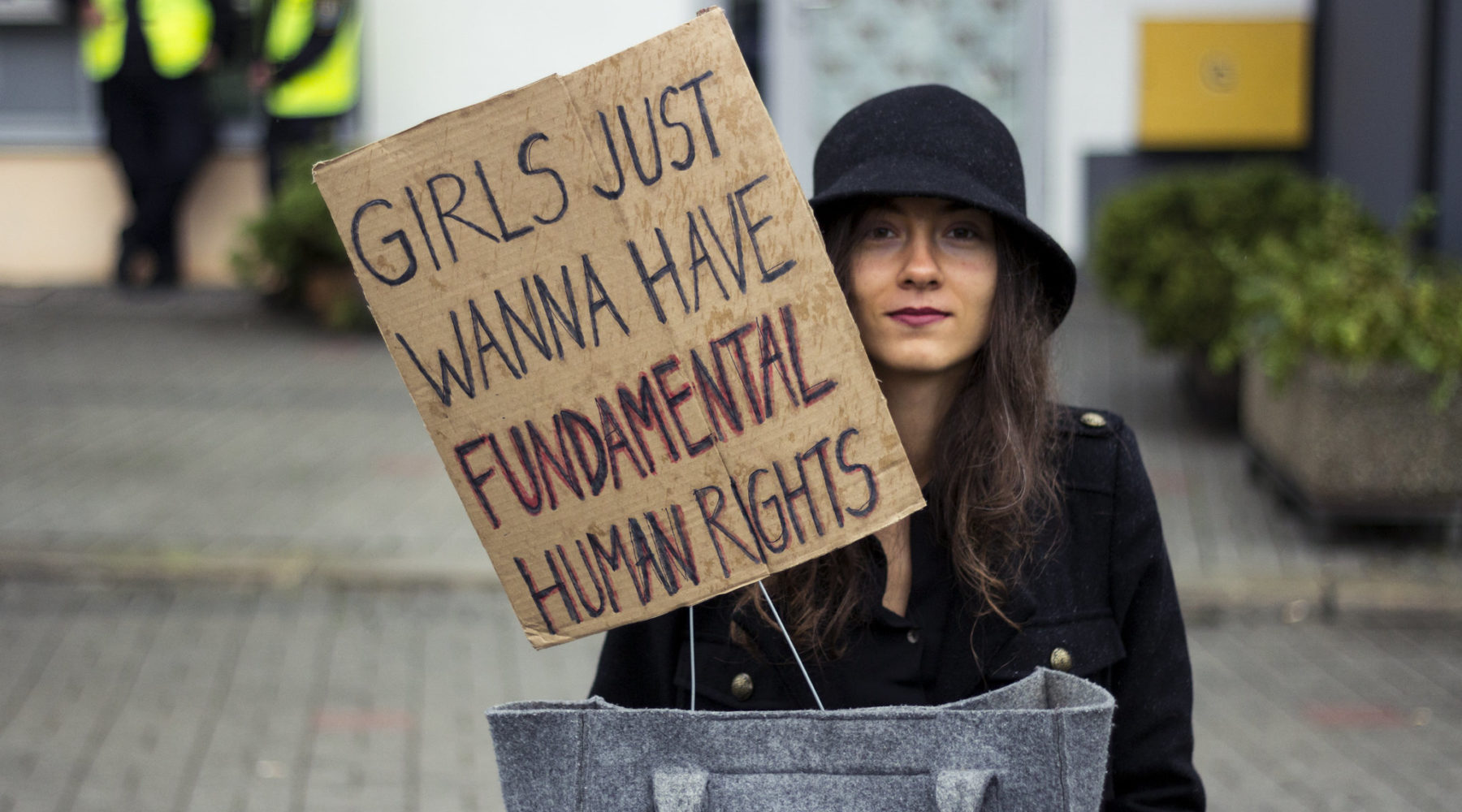


Humanists speaking in Warsaw at Europe’s largest human rights conference have condemned Poland for its poor record on protecting the rights of women in the country.
In a statement made during the annual Human Rights Conference of the Organisation for Security and Cooperation in Europe (OSCE), Humanists International has condemned Poland’s record on women’s rights on multiple grounds.
Despite Poland historically being one of the first countries in Europe to grant women voting rights, in more recent times gender equality and the rights of women have come under serious threat. The rise of religious conservatism in particular has undermined a number of the gains for which women have fought over the decades.
It is within this context, whilst attending the OSCE’s Human Dimension Implementation meeting (HDIM) meeting in Warsaw, Poland, that Humanists International used the opportunity to highlight the poor situation for women.
The statement pointed out that access to reproductive healthcare services in Poland has become even more restrictive, and there exist significant gaps in sexuality and human rights education. It also cited a report by Human Rights Watch which found that inaccessibility of government funding in Poland has led organizations to cut staff, diminish geographic coverage, and reduce essential services for survivors of domestic and other gender-based violence, leaving significant gaps in shelter, counselling, and legal support.
Despite the lack of domestic provision, the Polish government has also threatened to withdraw from the Council of Europe Convention on Preventing and Combating Violence against Women and Domestic Violence.
Director of Advocacy at Humanists International, Elizabeth O’Casey, commented that, “The situation for the rights of women, particularly in the areas of sexual and reproductive health, freedom from violence and the right to freedom of association has been deteriorating significantly in Poland. Between deeply unsavoury populist tendencies, the undue influence of some conservative religious actors and the crackdown on women human rights defenders, the situation is very difficult. I think it’s important that we used our place at this meeting in Poland to draw attention to it.”
The Human Dimension Implementation Meeting (HDIM) is an annual two-week conference held in Warsaw every autumn and is attended by some 1000 government representatives, international experts, non-governmental organizations, and human rights activists. Organized by the OSCE Office for Democratic Institutions and Human Rights (ODIHR), the meeting is considered to be Europe’s largest human rights conference.
The statement follows in full below:
Humanists International
Human Dimension Implementation Meeting, OSCE, Warsaw 2019
Working Session VIII: Tolerance and non-discriminationPoland was one of the first countries in Europe to grant women voting rights in 1918. It historically has had an active and vibrant women’s movement.
However, in more recent times gender equality and the rights of women in Poland have come under serious threat. The UN Working Group on Discrimination against Women observed after a country visit to Poland that “the rise of religious conservatism questions some of the gains women have fought for.”
As the Working Group points out, gender equality cannot be fully achieved without respecting women’s reproductive rights. Yet, access to reproductive healthcare services in Poland has become even more restrictive, and there exist significant gaps in sexuality and human rights education. Indeed this, despite commitments on education made under CEDAW including advice on family planning (article 10).
The OSCE Ministerial Council Decision No.4/18 renewed the call to ensure access to justice, effective investigation, prosecution of perpetrators, as well as adequate protection, rehabilitation and reintegration support for victims of all forms of violence against women and girls. However, a report by Human Rights Watch published earlier this year finds that inaccessibility of government funding in Poland has led organizations to cut staff, diminish geographic coverage, and reduce essential services for survivors of domestic and other gender-based violence, leaving significant gaps in shelter, counselling, and legal support.
Moreover, threats from the Polish government to withdraw from the Council of Europe Convention on Preventing and Combating Violence against Women and Domestic Violence, cannot but leave us with the impression that combating violence against women is not a priority issue for Poland.
It seems clear that in the area of gender equality and violence against women Poland currently falls short. We call on Poland, as an OSCE participating state, to reaffirm its commitment to gender equality and to the Istanbul Convention in full and demonstrate this commitment by drastic changes at home.
Top banner image: Iga Lubczańska